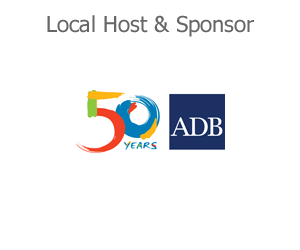SYMPOSIUM THEME
Every year millions of rural people are displaced in Asia due to the development of dams, infrastructure, mining, agriculture, and forestry. Governments are also displacing large communities of urban dwellers in order to make way for the development of mega-cities and to mitigate disaster risk. There is much evidence that many of the people displaced by large projects experience reduced wellbeing and impoverishment. Resettlement needs to be planned as a development opportunity and the challenge is how to move from a situation where most people's livelihoods are diminished to one where they are improved, especially in the context of the adoption of the Sustainable Development goals to eliminate extreme poverty by 2030. The challenge is to consider how to develop large projects in countries with rapidly expanding populations and limited land resources while enhancing the livelihoods of local communities.
Symposium participants will discuss key learnings on resettlement and livelihoods on urban and rural resettlement projects in Asia. The symposium aims to engage resettlement practitioners in Asia to explore an interest in creating a sustained virtual network that will exist beyond the symposium, thus allowing for a longer-term dialogue on resettlement and livelihoods issues, contributing to on-going capacity building in the region.
- Rural: Discuss experiences from dams, infrastructure, mining, agriculture and forestry projects seeing success in rural livelihood restoration.
- Urban: Explore case studies from project in large cities in Asia dealing with the challenge of restoring livelihoods from the resettlement of urban communities.
Sessions
Stay tuned, as full session descriptions will be coming soon. Session topics will include:
- New developments in resettlement and livelihoods
- How to engage with government in resettlement planning processes
- Engaging communities and civil society in resettlement planning and implementation
- Emerging standards, practices, and frameworks
- Planning resettlement communities
- New resettlement methodologies, including land pooling
- Livelihood enhancement in urban and rural settings
- Protecting vulnerable people
- Monitoring, evaluation, and resettlement close-out audits

